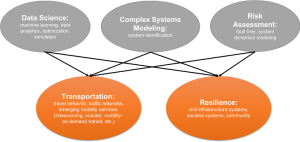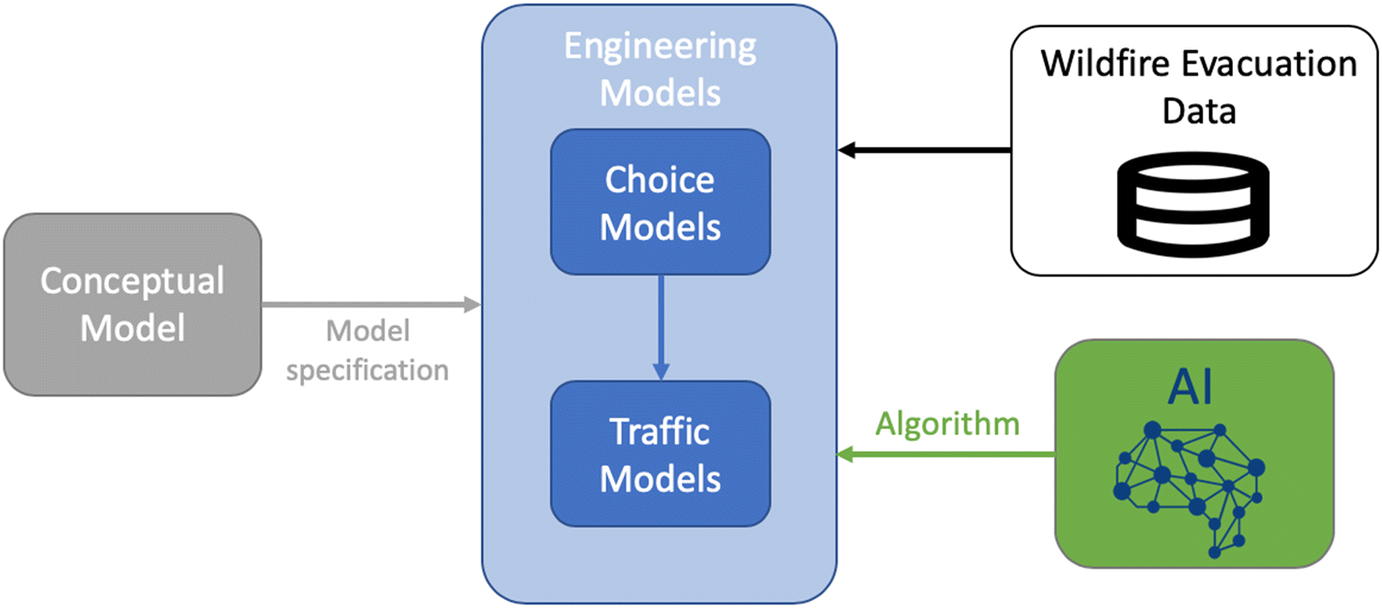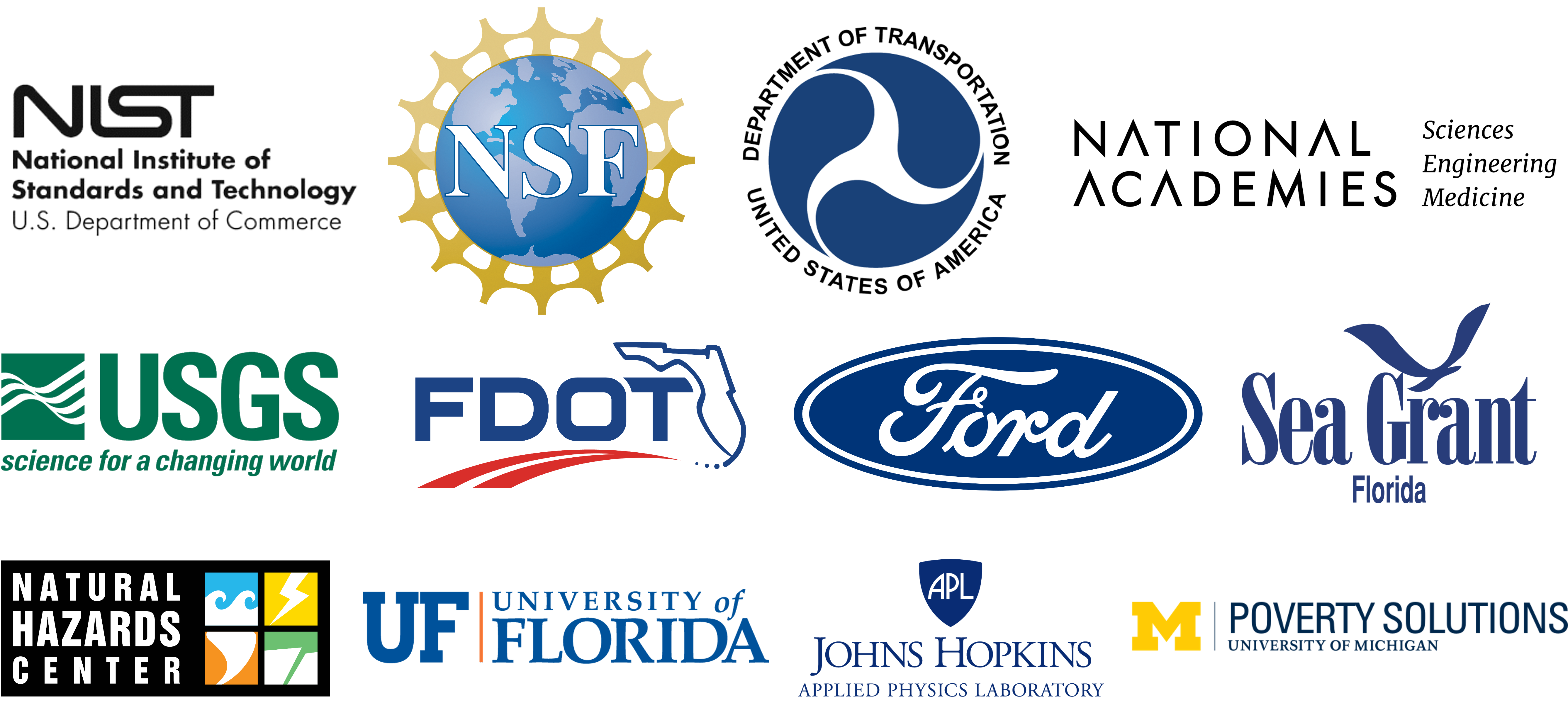SERMOS Lab’s research focuses on using data science, complex systems modeling, and risk assessment to address challenging problems in the fields of transportation and resilience. In particular, we aim to develop new methods, systems, and algorithms to create resilient future transportation systems that promote higher efficiency and effectiveness, boost mobility and accessibility, reduce congestion and greenhouse emissions, and become more resilient after adverse events such as natural and man-made hazards.

RESEARCH THEME 1: AI-POWERED COMMUNITY RESILIENCE MODELING
Our lab is developing AI-powered decision-support systems to assist disaster preparedness, response, and recovery. These decision-support systems will help stakeholders gain useful information for planning and real-time decision-making.

RESEARCH THEME 2: Micromobility as a last-mile enhancement to public transit
Our lab is developing a decision-support system for planning, designing, operating, and managing micromobility in U.S. cities. This tool is a web-based platform that 1) can crowdsource information from residents on traffic incidents such as crashes and near-misses; and 2) can help cities manage e-scooter parking and monitor equity policy compliance.



